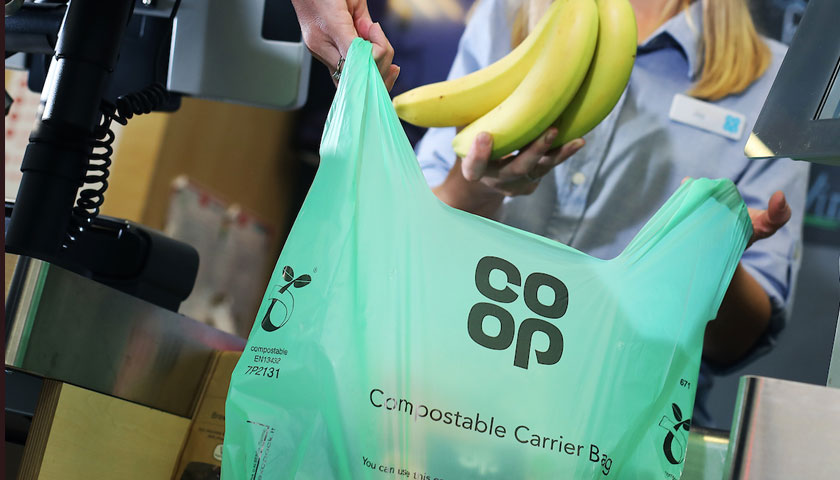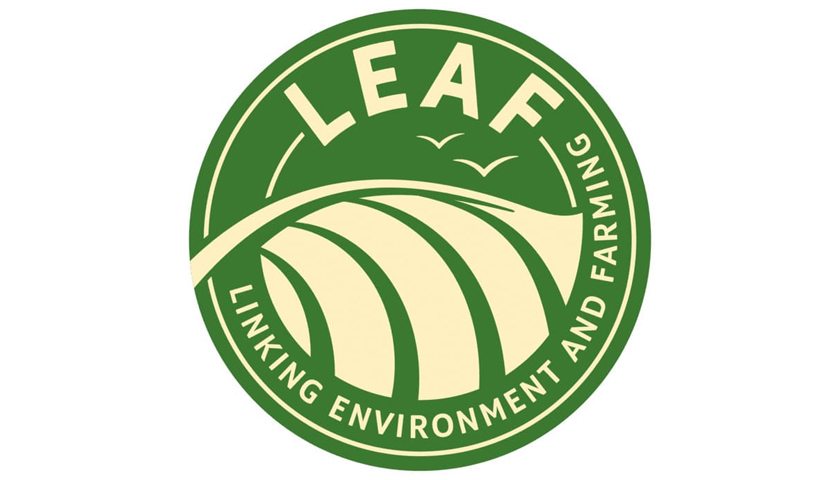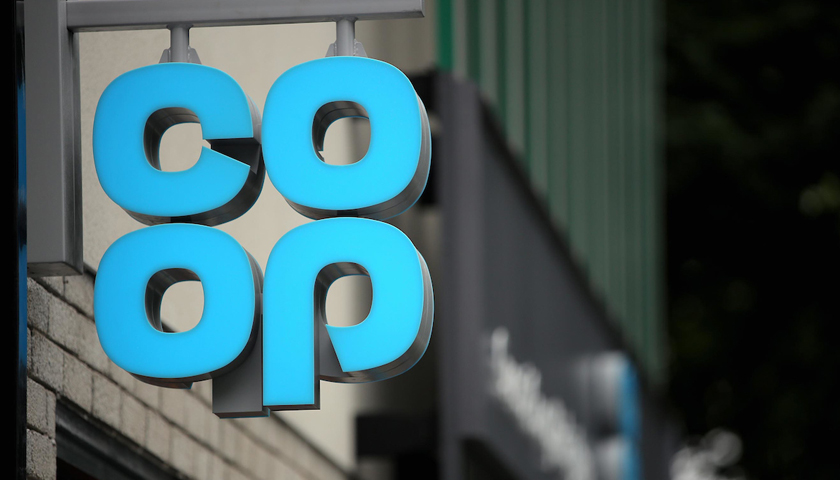More than one thousand Co-op food stores are at the fore of the community retailer’s move to ditch single-use plastics following the roll-out of compostable carrier bags.
The move has seen around 60 million single use plastic carrier bags removed and, replaced with the environmentally-friendly alternative in towns, villages and cities across the UK where the new bags are accepted as part of Local Authority household food waste recycling.
Shoppers – who forget their bag-for-life – use the compostable bags to carry shopping home, the bags then have a secondary use as food waste caddy liners. Initially rolled-out to areas where the Local Authority accepts them as part of household food waste collections, the bags can then be turned into peat-free compost along with the household food waste. The compostable carrier bags are also approved for home composting.
The not-for-profit compostable carriers are priced at 5p – the same price as the conventional single-use plastic bags they have replaced.
Iain Ferguson, Environment Manager, Co-op, said: “Our members and customers expect us to help them to make more ethical choices, and we are committed to doing just that. Reducing the environmental impact of products is, and always has been, at the core of Co-op’s efforts. Eliminating single-use plastic is a priority, and these bags are carefully designed to help local authorities with food waste recycling and, to reduce plastic contamination in a targeted way. We welcome measures designed to make recycling simpler and more accessible for consumers, bringing together supply and waste-value chains to achieve a more circular economy.”
Marcus Gover, CEO of WRAP – The Waste and Resources Action Programme, said: “We absolutely need to explore innovative ways of tackling plastic pollution, but there is a balance to ensure initiatives are well thought through and avoid unintended consequences. I’m pleased to see this reflected in the Co-op’s approach to its compostable carrier bag initiative by carefully designing an approach that aligns with existing local collection systems. By everyone moving in the right direction, we can transform the plastic system in the UK and keep plastic in the economy and out of the environment.”
The move is part of the community retailer’s hard-hitting ethical strategy which sets out how the Co-op will tackle plastic pollution as well as food waste, healthy eating, saving energy and trading fairly. The blue-print sets out how the Co-op will end the use of single-use own-brand plastic products. In addition, the Co-op’s pledge on plastic will see all its own-brand black and dark plastic packaging, including black ready meal trays, eliminated by next year (2020).
Almost three out of four products that the Co-op makes are now widely recyclable, which accounts for 95% of its products when measured by weight. The Co-op also sources 100% renewable energy for its stores.



